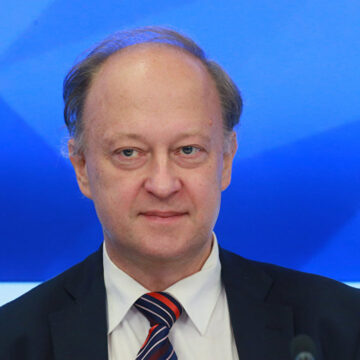Nearly five years have passed since the start of the dramatic events of the Maidan in Kiev that engendered a profound crisis in Russia’s relations with both Ukraine and the West.
Although the current situation may appear fragile, it demonstrates a high level of stability. Consequently, while the current status quo may not suit Ukrainian and Russian societies as a whole, it does to a certain extent suit at least the influential forces in the political leadership in the two countries. Or, in other words, the parties see the risks involved in a possible change to the status quo as higher than the risks connected with preserving the present state of affairs.
A question arises: How long can this relative and clearly sub-optimal stability last? In another five years, will we still be discussing Ukraine’s domestic situation and Russia–Ukraine relations using current parameters, noting merely insignificant shifts and delaying the ultimate resolution of the “Ukrainian question” to some indefinite future? Or does the current status quo already contain premises for some radical shifts in the coming years if not months?
Four possible scenarios of Russia–Ukraine relations may be proposed:
1. “Status Quo” (a weak Ukraine — confrontation). This scenario proceeds from the premise that in the next few years, Ukraine will fail to significantly progress on its path of economic reforms, bolstering government institutions, improving the effectiveness of state governance and fighting corruption. The questions of Ukraine joining the EU and NATO will be regularly delayed to some ever more distant future, and major western investment will not come into Ukraine. Under such circumstances, confrontation with Russia will remain the crucial source of legitimacy for any potential Ukrainian leader.
2. A Cold War (a strong Ukraine — confrontation). Ukraine will succeed in making the highly necessary breakthrough towards economic, social and political modernization. Socioeconomic stability, transparency, a certainty of the basic rules of the game and an independent judicial system will engender a significant influx of foreign, primarily western, investment. Kiev becomes a key boundary bulwark in the West’s confrontation with the East. For the Russian authorities, Ukraine becomes not merely a major nuisance, but a fundamental existential challenge.
3. “Balkanization” (a weak Ukraine — détente). In this scenario, Ukraine’s domestic development proceeds along the same lines as in the “status quo” scenario, while significant changes for the better take place in Russia–West relations. Moscow succeeds in avoiding further tightening of U.S. and Western sanctions and, moreover, in having them somewhat relieved. Russia succeeds in shifting the major responsibility for non-compliance with the Minsk agreements onto the Ukrainian leadership. The West becomes progressively more annoyed with Kiev. Donbass, which is not controlled by Kiev, becomes an example for other regions demanding broader rights. The “spontaneous federalization” of Ukraine removes the question of its NATO and EU membership from the agenda. Under such circumstances, Ukraine will gradually lose the functions of a full-fledged actor in European and global politics, transforming into an object of manipulation for external forces.
4. “The European Bridge” (a strong Ukraine — détente). This final and most optimistic scenario is based on two stabilizing trends coinciding: stronger Ukrainian statehood (as in the Cold War scenario) and a Russia–West détente (as in the “Balkanization” scenario). An opportunity arises to avoid many of the risks that the other scenarios entail and gradually transform Ukraine into an economic, political and even cultural and civilizational bridge between Russia and the West, which would be in the best long-term interests of all the parties to the present conflict.
For this scenario to materialize, it is crucial that Russia (not only the current Russian authorities, but also a significant part of Russian society today) recognize and accept Ukrainian people and Ukrainian authority as an independent agency.










